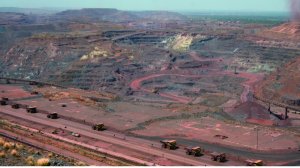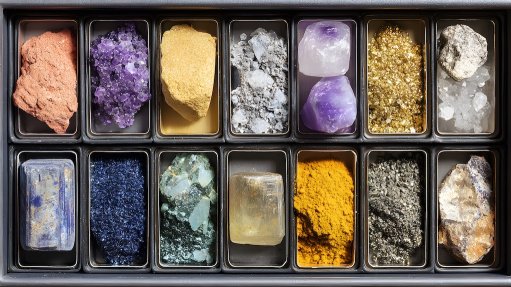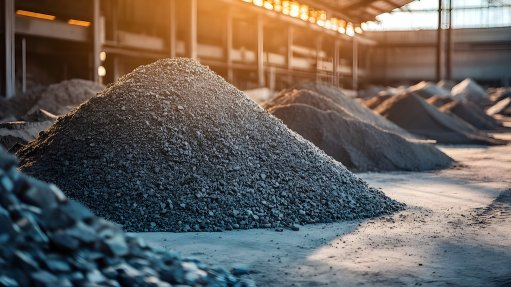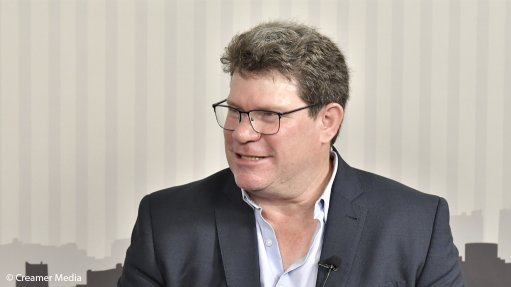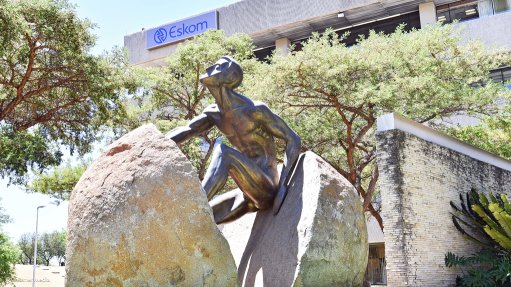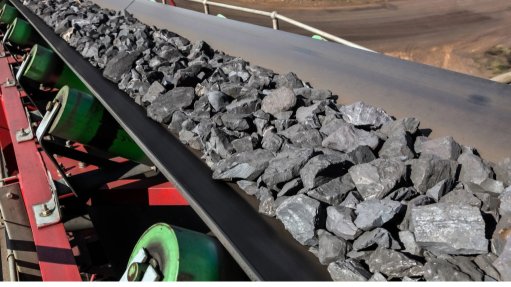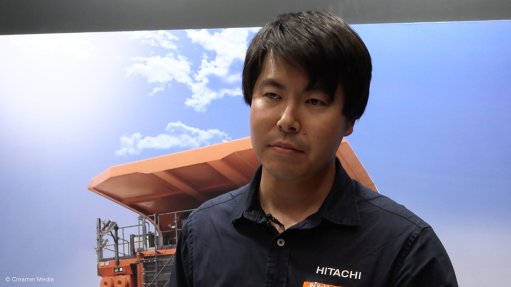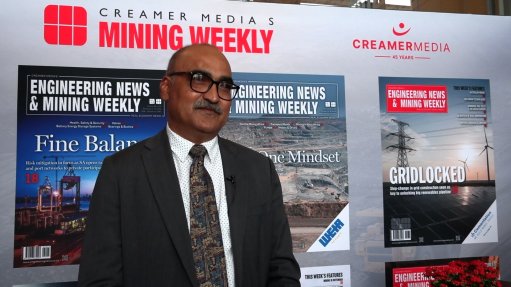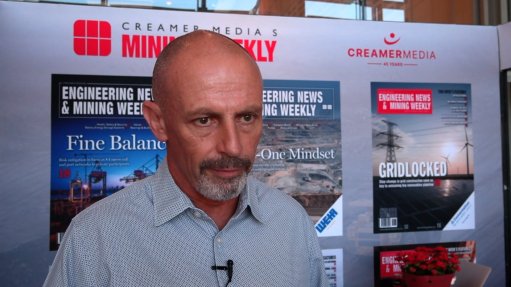Africa must unite or lose leverage in global resource power play, warns BloombergNEF

In this video, BloombergNEF metals and mining head Kwasi Ampofo discusses how Africa could leverage its mineral wealth on the global economic stage.
Mineral security has become national security and whoever controls the resources has a lot of leverage, BloombergNEF metals and mining head Kwasi Ampofo has said.
“But do African governments know the leverage they have in global politics? There was a time when government-to-government negotiations, government-to-government interest, just revolved around governance, but then increasingly, resources are becoming so important,” he said on September 1 at a media briefing in Sandton that laid out the ambitions and aspirations for the upcoming 2026 Investing in African Mining Indaba.
He said he hoped the Mining Indaba could be used as a platform to unite African governments to recognise and wield their mineral leverage on the global stage more effectively as a continent.
“The biggest danger is that Africa would not speak with one voice on how the resources are used as collateral, and speak as individual countries. And we believe that even our government forum offers a platform where we believe Africa can tap into that upside,” Ampofo said.
“Increasingly, we are hearing instances of resource nationalism creeping back in some African countries, and for us, it's important to be able to create that dialogue. We believe now is a time where all these parties need to come and work together.
“We've seen some downsides in terms of regional resource nationalisation and we're hoping that, through Mining Indaba 2026, we can manage some of the downside risk we've seen now in the industry,” he said, reiterating that the theme for the 2026 Mining Indaba was “Stronger Together”.
Ampofo said the mining industry’s biggest problem was the belief that it could exist without being in partnership – whether with government, civil society or the private sector.
“The only way this industry can grow from strength to strength is if we actually form partnerships. And sometimes it's not the comfortable partnerships,” he said.
He mentioned several levels of partnerships that needed to be pursued, including government, the private sector, civil society, industry bodies and chambers, universities and traditional leaders.
“For us, being able to form partnerships with government is very important. And for us, when we think about government, it's not just the national government. You can see that increasingly, every year, we always have the provincial governments represented quite strongly and even the local governments,” he said.
He said that a big part of this theme was to be able to reflect the desire for the mining industry to work more with the private sector as well.
Ampofo also emphasised the need to work with civil society.
“[Civil society] is not motivated by profit, not motivated by revenue, but for the social good of the people. I think one of the industries that is actually most scrutinised is the mining industry, because of the number of civil societies we have. And for us, it's not just a comfortable partnership we want to bring to the fore. It's also the uncomfortable ones sometimes,” he said.
He added that the Mining Indaba also wanted to work more with universities, because the future of Africa rested in them, in the skills that were being developed down the line.
“A big success at Mining Indaba this year will be being able to work with universities and institutions, research institutions like Mintek and the rest, so that they can also help us to scale the next generation of leaders for Africa,” he said.
Ampofo also highlighted traditional leaders as a very important constituency because, increasingly, they served as the gateway to most communities that mines operated in.
“The social licence to operate matters,” he said.
Ampofo also noted five areas where he believed that if the mining industry could form partnerships strategically and properly, it could actually unlock strength to strength.
The first is capital.
“I think one of the things that I would love to actually do is to be able to track how many deals are actually signed as a result of that one week that we all go to Cape Town,” he noted.
The second, in terms of what strength would look like, was infrastructure, Ampofo said.
“At Mining Indaba, as much as we are a mining conference, we believe that we cannot talk about mining without addressing the challenge of infrastructure across the continent. It's something we're hoping to talk about this year from an infrastructure perspective: airports, roads, energy, rail and ports.
“How do we include the conversation of exploration within the context of infrastructure? We need to have that conversation. For us, we can only grow stronger as an industry if we address the energy. We want to be able to have that conversation of railway,” he said.
Third, he noted the importance of buyers.
“Everyone wants a counterpart. Being seen is very important. Being valued is very important. We believe that, over the last two years, one thing that we've invested in is our buyers’ programme, because imagine producing raw materials and no one actually wanted them?” he said.
Ampofo said that he thought the next supercycle in the commodities market would be a buyers’ market.
“We found that, if we don't bring these buyers to sit next to the mining industry, we run the risk of them looking elsewhere for other commodities,” he said.
Ampofo said the third strength for the Mining Indaba to pursue was that, in a year's time, he wanted to see the downstream bias having a stronger relationship with the upstream.
“That's the only way we can forge a future together in order to ensure that they do not out-innovate the commodities that matter to us as a continent for something else,” he said.
The fourth strength was all about skills, he said.
“We want to be able to see new talents given the platform at Mining Indaba 2026 so they can showcase. There's a very big misconception that when it comes to mining, we [in Africa] are actually laggards. But we are leaders. Some of the best mining schools are in this country and on the continent, and some of the most skilled mining professionals we have.
“Everywhere you go, you're going to find an African mining professional there. And for us, we want to be able to use Mining Indaba to elevate that skill set we have, whether it's technical or social. So please influence us. You have a big job to do, spotlighting the skills that we have in Africa. I don't think we talk about it enough,” he said.
The final strength he said needed to be emphasised was good governance.
“What we are seeing is that the Global North seems to be doing very well on these investment attractiveness rankings, and the Global South, which is where most of the African countries are, has not been doing so well.
“And for us, when we dug deeper into it, part of the issue comes down to good governance. And we want to use the Indaba platform to promote good governance, to give governments and companies the toolkits they need to be able to support them,” Ampofo said.
Article Enquiry
Email Article
Save Article
Feedback
To advertise email advertising@creamermedia.co.za or click here
Press Office
Announcements
What's On
Subscribe to improve your user experience...
Option 1 (equivalent of R125 a month):
Receive a weekly copy of Creamer Media's Engineering News & Mining Weekly magazine
(print copy for those in South Africa and e-magazine for those outside of South Africa)
Receive daily email newsletters
Access to full search results
Access archive of magazine back copies
Access to Projects in Progress
Access to ONE Research Report of your choice in PDF format
Option 2 (equivalent of R375 a month):
All benefits from Option 1
PLUS
Access to Creamer Media's Research Channel Africa for ALL Research Reports, in PDF format, on various industrial and mining sectors
including Electricity; Water; Energy Transition; Hydrogen; Roads, Rail and Ports; Coal; Gold; Platinum; Battery Metals; etc.
Already a subscriber?
Forgotten your password?
Receive weekly copy of Creamer Media's Engineering News & Mining Weekly magazine (print copy for those in South Africa and e-magazine for those outside of South Africa)
➕
Recieve daily email newsletters
➕
Access to full search results
➕
Access archive of magazine back copies
➕
Access to Projects in Progress
➕
Access to ONE Research Report of your choice in PDF format
RESEARCH CHANNEL AFRICA
R4500 (equivalent of R375 a month)
SUBSCRIBEAll benefits from Option 1
➕
Access to Creamer Media's Research Channel Africa for ALL Research Reports on various industrial and mining sectors, in PDF format, including on:
Electricity
➕
Water
➕
Energy Transition
➕
Hydrogen
➕
Roads, Rail and Ports
➕
Coal
➕
Gold
➕
Platinum
➕
Battery Metals
➕
etc.
Receive all benefits from Option 1 or Option 2 delivered to numerous people at your company
➕
Multiple User names and Passwords for simultaneous log-ins
➕
Intranet integration access to all in your organisation


